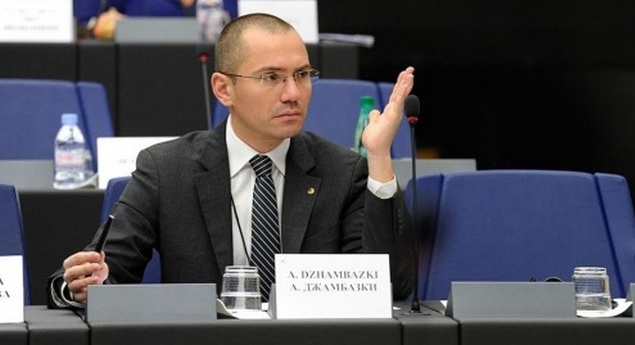Angel Dzhambazki, Bulgarian Member of the European Parliament of the European Conservatives and Reformists Group VMRO, has written a letter to his MEP colleagues and to German Foreign Minister Heiko Maas, reacting to the resolution adopted by Macedonia’s Parliament on July 29 which set out the so-called red lines in the talks with Bulgaria on Macedonian identity and language in the context of the Western Balkan country’s EU accession negotiations.
If these ‘red lines’ are observed, the Joint Commission simply cannot function, Dzhambazki argued, referring to the Joint Multidisciplinary Commission of Experts on Historical and Educational Issues between Bulgaria and Macedonia, established under the bilateral Treaty of Friendship, Good Neighborliness and Cooperation, signed on Aug. 1, 2017.
“It [the Commission] was initially intended to address open issues related to history, culture, identity and language. Right from the outset, however, the Macedonian side has repeatedly boycotted that Commission because it is unable to present sufficiently reliable evidence, based on primary and secondary historical sources, to support their allegations,” the MEP wrote, quoted by VMRO in a press release.
According to Dzhambazki, the “red lines resolution” makes any discussions based on facts, documents and reliable sources out of date. He points out that “whatever evidence is presented, the Republic of Macedonia will simply refuse to discuss the matter.”
“This latter tactic obviously proves us right that the present-day Macedonian identity is based on a historical lie through an intricate creation of a state mythology.
“Let me state that we do not deny the state identity of the Republic of Macedonia after 1944.
“We do not deny that the language they use is a codified version of the Western Bulgarian dialects, again in 1944.
“We simply oppose any attempts to steal parts of our own history which are supported by facts acknowledged by international historians,” Dzhambazki writes.




Comments are closed for this post.